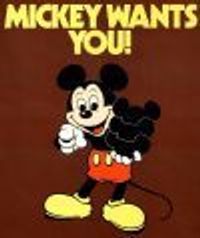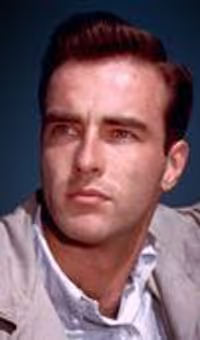Composer v. Orchestrator
SorryGrateful
Broadway Legend Joined: 5/10/05
#0Composer v. Orchestrator
Posted: 12/20/05 at 10:54amWhere does one's job end and the other's begin? I'm sure there is no definite line, but I am curious as to how their work comes together and how the orchestrations come together with a composer's work.
#1re: Composer v. Orchestrator
Posted: 12/20/05 at 11:20am
Although I'm sure there are textbook definitions out there, here's how it's always made sense to me, especially when trying to explain to someone.
Think of what the composer does as on the piano. The composer comes up with melodies, chords, and tempos, in piano form. The orchestrator then comes in and decides what instrument in the orchestra gets to play each of those notes. For example, the composer has written a loud chord at the end of the song. The orchestrator then writes that chord out, scored for 3 horns, 5 strings, and percussion.
SorryGrateful
Broadway Legend Joined: 5/10/05
#2re: Composer v. Orchestrator
Posted: 12/20/05 at 11:22amOhhhhhhh! That makes so much sense! Thank you, MYB!
Jon
Broadway Legend Joined: 2/20/04
#4re: Composer v. Orchestrator
Posted: 12/20/05 at 12:17pmThe composer often writes suggestions in the score such as "strings", "horns" or "woodwinds", then the orchestrator actually figures out which specific instrument plays each note. The orchestrator also figures out what intruments and how many players for easch are needed, based on the show's budget and contract with the musician's union. For instance, if you have to use no more than 20 players, the orchestrator will figure out the best breakdown - how many woodwind players do you need (assuming they play multiple instruments), can a synthesizer replace the string section, etc.
#5re: Composer v. Orchestrator
Posted: 12/20/05 at 12:27pm
This is a really good question! And there's no easy answer to it, although I think the answers you've gotten are very good.
The problem is that people compose differently. Some are very well trained musicians and can do a lot of the counter-melodies and instrumentation "suggestions" themselves. Others sing into a tape recorder (Mel Brooks) or can only play the piano in one key (Irving Berlin---and it was G-flat major... such a LOVELY key). They needed more help from an orchestrator/arranger than, say, Rodgers or Webber (who often does his own orchestrations).
So the job of the orchestrator can vary widely. They can come up with more complex chord structures, counter-melodies, etc. They can develop the mood of a song. Some will even write the underscoring sections or the dance arrangements (which bleeds into composing).
So, it's a blurry line sometimes, but a fascinating one.
blocked: logan2, Diamonds3, Hamilton22
leefowler
Broadway Star Joined: 7/13/04
#6re: Composer v. Orchestrator
Posted: 12/20/05 at 12:59pm
On the shows I've worked on, this is a little closer to the actual process:
The composer writes the song. It is then put into the hands of the director and choreographer, who, along with the arranger, make many additions and changes. The arranger accomodates the various changes, by playing with the accompaniment, writing a new intro, writing music under dialogue, writing music for dances and staging, and the like. At some point, this version is presented to the composer for approval, who might want some more changes. After the composer signs off on it, it's then presented to the orchestrator. The cast will perform the number for the orchestrator, and he will be given a detailed piano arrangement prepared by the arranger. Remember, the orchestrator usually isn't a part of the process until he sees a finished number.
Of course this is different from show to show. But I've worked on many shows, and I don't recall a single time that a song went directly from the composer to the orchestrator.
#7re: Composer v. Orchestrator
Posted: 12/20/05 at 1:07pm
Actually, leefowler, you're pointing out a very good distinction between "music arranger" and "orchestrator."
Most people think they're one in the same.
Sometimes they are to a point, but the "jobs" and their creative contributions are usually different.
blocked: logan2, Diamonds3, Hamilton22
leefowler
Broadway Star Joined: 7/13/04
#8re: Composer v. Orchestrator
Posted: 12/20/05 at 1:27pmIt's helpful to think of the arranger of a Broadway show as a musical assistant to the director and chreographer.
RentBoy86
Broadway Legend Joined: 2/15/05
#9re: Composer v. Orchestrator
Posted: 12/20/05 at 1:57pmso when it says "Music by..." that just means the melodies & tempos and whatnot? Like does ALW orchestrate his own scores? Does Sondheim? I know Larson didn't.
#10re: Composer v. Orchestrator
Posted: 12/20/05 at 2:13pm
RentBoy86 --- That's where the "gray area" comes in. When it says "Music by" it can mean everything from Mel Brooks singing into a tape recorder to Webber (who writes, arranges and orchestrates, or at least co-orchestrates his own music)... or Richard Rodgers, who wrote all his own songs, dance music and ballets for his musicals.
blocked: logan2, Diamonds3, Hamilton22
elmore3003
Leading Actor Joined: 3/31/04
#11re: Composer v. Orchestrator
Posted: 12/20/05 at 2:47pm
It can actually be much more vague than you realize. I did a show reginally about 10 years ago when I discovered that the dance arranger was the only literate person on staff and that the lead sheets we were getting from the writers meant that I had to arrange everything I was given before I could think of scoring it. I still don't think the writers had any idea of what they wanted the show to sound like. Harvey Schmidt is generally pretty loose about things until he hears the band, and then he may say "I don't like the horn" or "Can you take that out?" He's also great about things you've added that he likes.
The rumor about bob Merrill's scores for "New Girl in Town" and others was that he played his melodies on a toy xylophone and Philip J. Lang, the orchestrator harmonized the tune, arranged it, and scored it. Hershy Kay supposedly was in a band rehearsal where the band played the tune in unison. The composer turned and said "what's that?" and Hershy said "what you gave me."
I've always compared the job to a photo: the composer gives you a piano sketch and that's the black & white photo; the orchestrator's job is to color it using whatever instruments he, the composer, and producer agree upon.
SorryGrateful
Broadway Legend Joined: 5/10/05
#12re: Composer v. Orchestrator
Posted: 12/20/05 at 2:54pm
This is one of the reasons I love BWW-- intelligent and polite discussions. Thank you all so much for being so great!
This really is a fascinating discussion and I appreciate all of this information. The distinction has never been clear to me and it normally confuses me.
MargoChanning
Broadway Legend Joined: 4/5/04
#13re: Composer v. Orchestrator
Posted: 12/20/05 at 3:01pmNeither Sondheim nor ALW orchestrate their own scores. Not many composers do (or have the time, training and/or interest in doing so). Even those who can orchestrate, like Jason Robert Brown, will sometimes leave the job to someone else (he had Don Sebesky orchestrate Parade), partly due to time and partly because of what a certain orchestrator can bring to the score (Brown adored the way Sebesky orchestrated and knew he would bring something to the sound of the show that he couldn't).
#14re: Composer v. Orchestrator
Posted: 12/20/05 at 3:07pm
Actually, Margo, ALW does co-orchestrate most of his own shows. He does his own musical arranging as well.
He's a rare one, though.
blocked: logan2, Diamonds3, Hamilton22
touchmeinthemorning
Broadway Legend Joined: 9/3/04
#15re: Composer v. Orchestrator
Posted: 12/20/05 at 3:08pm
It almost always has to do with how the composer composes. Those of us who use computer programs to compose like the option of orchestrating at the same time -- it gives us a better sense of how things will sound (if you have good samples), and it is all just a click away. If a composer composes on a single instrument (piano or kazoo), the chances of them taking the time to orchestrate are fairly low.
Also, many times, like Margo mentions, the composer wants someone to bring something to a work, so they have someone else orchestrate.
leefowler
Broadway Star Joined: 7/13/04
#16re: Composer v. Orchestrator
Posted: 12/20/05 at 3:34pm
Best12bars,
Just for a little clarification:
Richard Rodgers did not write his own dance music, that was left to the brilliant Trude Rittman. Maybe you're confused by the fact that he DID write the "Carousel Waltz", which was an older piece of music (written, I think, for a radio show) which was later used to open "Carousel".
Regarding ALW's co-orchestration credit, I would maybe take that with a grain of salt.
MargoChanning
Broadway Legend Joined: 4/5/04
#17re: Composer v. Orchestrator
Posted: 12/20/05 at 3:39pmI may be wrong, but didn't Rodgers also orchestrate (in addition to composing) "Slaughter on Tenth Avenue" for ON YOUR TOES? I thought I read that he did.
elmore3003
Leading Actor Joined: 3/31/04
#18re: Composer v. Orchestrator
Posted: 12/20/05 at 3:45pm
Richard Rodgers did write the ballet music for "On Your Toes," "The Boys from Syracuse," and "Babes in Arms." He did not orchestrate it, and he left the dance music based on the songs, like the "I Wish I were In Love" dance for the orchestrator to handle. On "The Boys from Syracuse," Hans Spialkek did most of the orchestrations but he did have help. The rhumba after "Sing for Your Supper" was scored by a gentleman whose name I forget, but the original parts and scores show that Spialek went back to the rhumba arrangement and rewrote the trumpets. I, too, susp[ect that there are more notes by David Cullen than Sir Andrew in a co-orchestration by ALW.
Updated On: 12/20/05 at 03:45 PM
leefowler
Broadway Star Joined: 7/13/04
#19re: Composer v. Orchestrator
Posted: 12/20/05 at 3:46pm
You're right, he did write "Slaughter", but it was orchestrated by (I think) Hans Spialek. I'm not aware of Rodgers orchestrating anything ever. Among the ballets written by Trude Rittman:
Oklahoma Dream Ballet
Small House Of Uncle Thomas
Flower Drum Song Dream Ballet
She also wrote the very beautiful interlude that comes after "Twin Soliloquies" in South Pacific.
#20re: Composer v. Orchestrator
Posted: 12/20/05 at 3:47pm
Rodgers also wrote his ballet sequences for Oklahoma, Carousel and King & I. He insisted upon it.
EDIT: leefowler --- you beat me to it.
blocked: logan2, Diamonds3, Hamilton22
MargoChanning
Broadway Legend Joined: 4/5/04
#21re: Composer v. Orchestrator
Posted: 12/20/05 at 3:49pmThanks for the info/clarification.
leefowler
Broadway Star Joined: 7/13/04
#22re: Composer v. Orchestrator
Posted: 12/20/05 at 3:53pm
Yet another thought about the ballets that Rodgers wrote...
I think it's fair to say that he wrote the themes for these ballets, and then handed them over to a pianist/arranger, who worked with the choreographer to iron out the specifics. Here's the two things you need to know:
Richard Rodgers is not going to hand a piece of music to Ballanchine and say, "Here it is, don't change a note, it's perfect" And...
Richard Rodgers is not going to sit around for weeks playing for dance rehearsals while the music is being set. I'm sure he had a lot to say about the ballets when they were finished, and I'm sure he had the last word, but I still think an arranger had a hand in these.
#23re: Composer v. Orchestrator
Posted: 12/20/05 at 3:53pmAnd Robert Russell Bennett orchestrated the R&H shows... brilliantly, I might add. He helped give them their "sound."
blocked: logan2, Diamonds3, Hamilton22
leefowler
Broadway Star Joined: 7/13/04
#24re: Composer v. Orchestrator
Posted: 12/20/05 at 3:56pmRodgers did not write the ballets for Oklahome and The King And I. It's quite well known that Trude Rittman wrote these. You could argue, of course, that these ballets are heavily based on the songs that Rodgers wrote.
Videos



